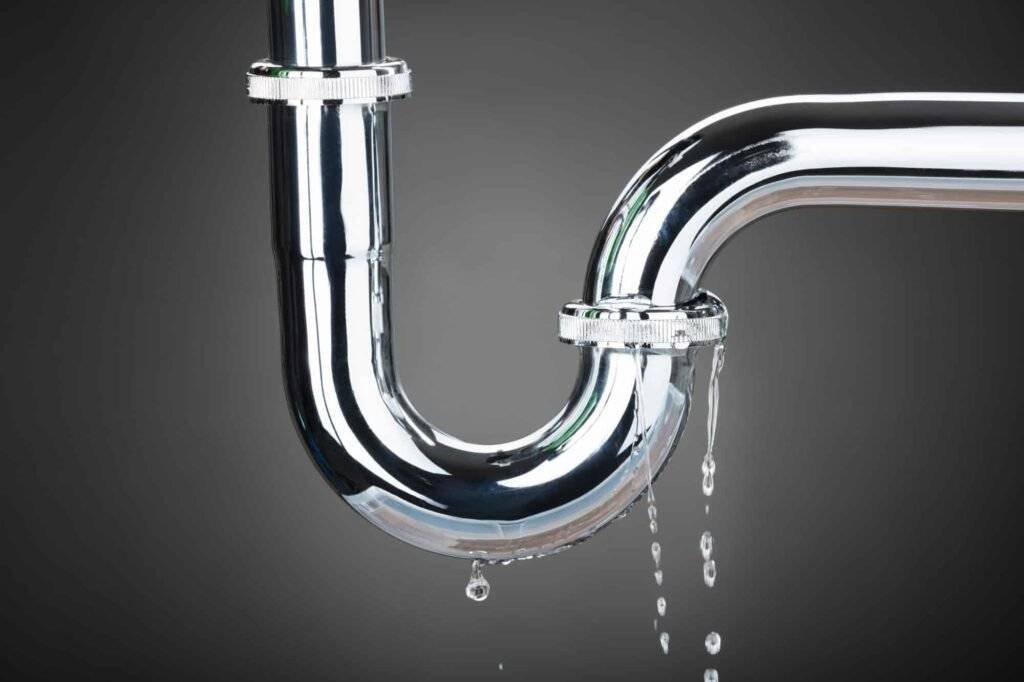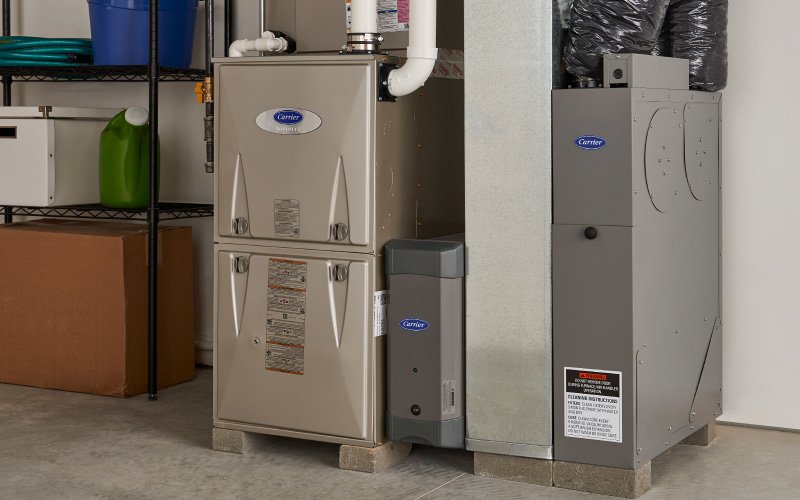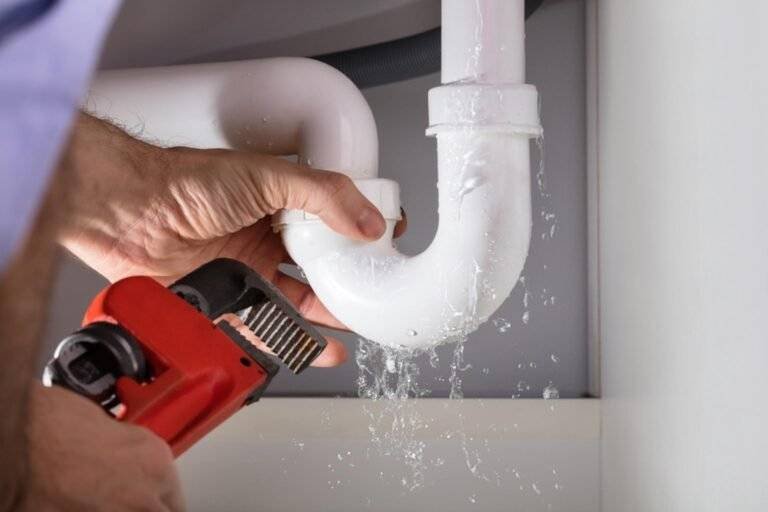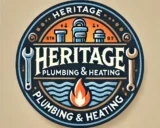Heritage Plumbing & Heating in Saint Albert Delivers Top-Notch Plumbing & Heating Services to Homeowners
Welcome to Heritage Plumbing & Heating, your reliable partner for all your plumbing and heating requirements in Saint Albert. With substantial industry experience, our professionals deliver superior services, varying from regular maintenance & minor repair services to intricate installations and system upgrades. We pride ourselves on utilizing the most recent modern technologies and top notch materials to make certain efficient, lasting remedies. Our dedication to clear communication, uncomplicated pricing, and individualized customer care makes us unique, positioning us as the top choice for house owners seeking reliable and specialist services. At Heritage Plumbing & Heating, your convenience and satisfaction are our top concerns.



Common Plumbing Issues and How to Avoid Them
Plumbing troubles can disrupt your daily life, leading to considerable inconvenience and costly fixings. Understanding usual problems and how to prevent them can conserve you both money and time. Here are five regular plumbing troubles and tips to avoid them.
1. Leaking Faucets
A dripping faucet is not just annoying but can also waste a substantial amount of water. This can eventually cause increased utility bills and potential water damage.
Prevention Insights:
- Routine Upkeep: Occasionally check taps for deterioration. Change damaged washers and gaskets.
- Stay Clear of Over-tightening: When turning off a faucet, don’t use too much force. Applying too much pressure can damage components, resulting in leaks.
- Immediate Corrections: Repair leaks as soon as they are discovered. Delaying repair services can worsen the trouble and trigger considerable damage.
2. Clogged Drains
A common issue is clogged drains, typically resulting from the accumulation of hair, soap, grease, and food particles. They can cause water backups and unpleasant odours.
Avoidance Tips:
- Use Drain Filters: Install displays over drains to capture hair and debris before they trigger obstructions.
- Proper Waste Management: Never pour grease down the drain. Instead, dispose of it in a container and throw it in the trash.
- Scheduled Drain Pipe Cleaning: Occasionally clean drains utilizing eco-friendly solutions like baking soda and vinegar. Stay clear of utilizing strong chemicals, which can damage pipes.
3. Persistently Running Toilets
A persistently running toilet can squander a substantial quantity of water, resulting in increased energy costs. This issue is commonly caused by a faulty flapper shutoff, fill shutoff, or overflow tube.
Prevention Insights:
- Check Parts: Frequently check the toilet flapper and fill mechanism for deterioration. Replace as needed.
- Adjust the Float: Make sure the float is at the appropriate level to avoid constant refilling.
- Test for Leakages: Add a few drops of food colouring to the toilet tank. If the colour appears in the bowl without flushing, there is a leak that needs addressing.
4. Weak Water Pressure
Weak water pressure can make simple tasks such as showering or doing the dishes irritating. Common causes include mineral accumulation in the pipes, leakages, or municipal water supply problems.
Prevention Insights:
- Aerators Maintenance: Periodically clean and remove faucet aerators to stop mineral deposits from accumulating.
- Look for Drips:Inspect pipes for any evidence of leaks, since they can decrease water pressure.
Water Purifier: If you live in an area with hard water, consider installing a water softener to reduce mineral build-up.
5. Problems with Water Heaters
Issues with water heaters, like no hot water or unusual sounds, can stem from buildup of sediment, malfunctioning thermostats, or degraded heating elements.
Prevention Insights:
- Routine Upkeep: Flush the water heater tank annually to remove sediment build-up. This can extend the life of the unit and improve efficiency.
- Inspect Parts: Frequently inspect the thermostat and heating components. Replace them if they show signs of wear.
- Temperature Settings: Keep the water heater set at an optimal temperature (120°F) to avoid overheating and reduce wear on components.
General Tips for Preventing Plumbing Issues
- Familiarize Yourself with Your Plumbing System: Become acquainted with your home’s plumbing setup, noting the position of the main shut-off valve.
- Frequent Inspections: Regularly inspect all plumbing fixtures and pipes. Check for indications of leaks, corrosion, or any other problems.
- Guide Household Residents: Make sure each person at home is aware of how to operate and upkeep the plumbing fixtures.
- Professional Assistance: When doubtful, look for specialist support. An accredited plumber can give experienced guidance and repair service services to keep your plumbing system in top form.
By remaining attentive and taking preventive measures, you can avoid usual plumbing troubles and guarantee your system runs smoothly. Keep in mind, a little maintenance goes a long way in keeping your home’s plumbing trouble-free.
The Most Common Heating Systems in Canada
Heating systems are vital for maintaining comfort in Canadian homes, especially during the long, harsh winters. Different types of heating systems are popular across the country, each with its unique advantages and drawbacks. Here’s an overview of the most common heating systems in Canada.
1. Furnaces
Furnaces are one of the most widely used heating systems in Canada. They operate by heating air and distributing it throughout the home via a network of ducts and vents. Furnaces can be powered by natural gas, oil, propane, or electricity.
Advantages:
- Efficiency: Modern furnaces, especially those powered by natural gas, are highly efficient, with some models boasting efficiency ratings of 95% or higher.
- Even Heating: Furnaces provide consistent, even heating throughout the home.
- Quick Warm-up: They heat up quickly, making them ideal for cold climates.
Drawbacks:
- Initial Cost: High-efficiency furnaces can be expensive to install.
- Maintenance: Regular maintenance is required to keep the system running efficiently.
2. Boilers
Boilers heat water and distribute the steam or hot water through a system of pipes to radiators, baseboard heaters, or underfloor heating systems. They can be powered by natural gas, oil, or electricity.
Advantages:
- Even Heat Distribution: Boilers provide even and comfortable heat.
- Quiet Operation: They operate more quietly than forced-air systems.
- Zoning Capabilities: Boilers can easily be set up with zoning systems, allowing different areas of the home to be heated independently.
Drawbacks:
- Slow Warm-up: Boilers take longer to heat a home compared to furnaces.
- Space: They require space for the boiler unit and associated piping.
3. Heat Pumps
Heat pumps are becoming increasingly popular in Canada due to their efficiency and dual functionality. They work by extracting heat from the outside air or ground and transferring it indoors. Heat pumps can also be used for cooling during the summer.
Advantages:
- Energy Efficiency: Heat pumps are highly efficient, using less energy compared to traditional heating systems.
- Dual Functionality: They provide both heating and cooling.
- Environmental Impact: They have a lower environmental impact, especially when powered by renewable energy sources.
Drawbacks:
- Initial Cost: Installation can be expensive.
- Effectiveness in Extreme Cold: Air-source heat pumps can be less effective in extremely cold temperatures, although newer models are improving in this regard.
4. Electric Baseboard Heaters
Electric baseboard heaters are often used as a primary heating source in smaller homes or as supplementary heat in larger homes. They operate by heating up coils within the baseboard unit, which then radiates heat into the room.
Advantages:
- Ease of Installation: They are easy to install and do not require ductwork or piping.
- Zoning: Each unit can be controlled independently, providing precise temperature control in each room.
Drawbacks:
- Operating Costs: Electric baseboard heaters can be expensive to operate, especially in areas with high electricity rates.
- Heat Distribution: They may not distribute heat as evenly as other systems.
5. Radiant Floor Heating
Radiant floor heating systems use either hot water or electric coils embedded in the floor to provide heat. This type of heating is highly efficient and provides a comfortable, even warmth throughout the room.
Advantages:
- Comfort: Provides a consistent and comfortable heat.
- Energy Efficiency: Highly efficient, especially when used with high-efficiency boilers or heat pumps.
- Aesthetic: Eliminates the need for visible heating units like radiators or baseboards.
Drawbacks:
- Installation Cost: Radiant floor heating can be expensive to install, particularly in existing homes.
- Slow Response Time: It takes longer to heat up a room compared to forced-air systems.
Conclusion
Choosing the right heating system for a Canadian home depends on various factors, including the climate, home size, budget, and personal preferences. While furnaces and boilers remain popular for their efficiency and reliability, newer technologies like heat pumps and radiant floor heating are gaining traction for their energy-saving capabilities and comfort. Understanding the pros and cons of each system can help homeowners make an informed decision that ensures warmth and comfort during the cold Canadian winters.
Plumbing & Heating Basics
Plumbing and heating systems are crucial components of any home, providing essential services that ensure comfort, hygiene, and convenience. While both systems operate independently, they often intersect, especially in the context of hot water supply. Understanding the basics of plumbing and heating can help homeowners maintain these systems effectively, avoid common problems, and make informed decisions about upgrades and repairs.
Plumbing Systems
1. Components and Functionality
Plumbing systems encompass a network of pipes, fixtures, and appliances designed to supply clean water for drinking, cooking, and bathing, as well as to remove wastewater. Key components include:
- Supply Lines: These pipes bring fresh water into the home from the municipal water supply or a private well.
- Fixtures: Sinks, toilets, showers, and bathtubs where water is used.
- Drainage System: A network of pipes that carry wastewater away from the home to a septic tank or municipal sewer system.
- Water Heater: Provides hot water for bathing, cooking, and cleaning.
2. Common Issues and Maintenance
Regular maintenance is vital to keep plumbing systems running smoothly. Common issues include:
- Leaky Faucets: Often caused by worn-out washers or gaskets, leading to water wastage and higher bills.
- Clogged Drains: Resulting from the buildup of hair, grease, and other debris. Preventative measures include using drain screens and avoiding pouring grease down the drain.
- Running Toilets: Typically due to faulty flapper valves or fill valves, causing continuous water flow.
- Low Water Pressure: Can be caused by mineral deposits, leaks, or issues with the municipal supply.
3. Maintenance Tips
- Regular Inspections: Check for signs of leaks, corrosion, and blockages.
- Professional Help: Hire licensed plumbers for annual inspections and major repairs.
- Proper Use: Educate household members on the correct use of fixtures to avoid damage.
Heating Systems
1. Types and Operation
Heating systems are essential for maintaining comfort during cold weather, especially in regions with harsh winters like Canada. Common heating systems include:
- Furnaces: Heat air and distribute it through ducts. They can be powered by natural gas, oil, propane, or electricity.
- Boilers: Heat water and distribute steam or hot water through radiators or underfloor heating systems. They can also use various fuel sources.
- Heat Pumps: Extract heat from the air or ground and transfer it indoors. They are efficient and can also provide cooling.
- Electric Baseboard Heaters: Use electric coils to produce heat, ideal for individual room control.
- Radiant Floor Heating: Uses hot water or electric coils embedded in floors for even heat distribution.
2. Common Issues and Maintenance
Heating systems require regular maintenance to ensure efficiency and longevity. Common issues include:
- Dirty Filters: Can reduce airflow and efficiency in furnaces and heat pumps.
- Pilot Light Problems: In gas furnaces and boilers, issues with the pilot light can prevent the system from operating.
- Thermostat Issues: Faulty thermostats can cause inconsistent temperatures or prevent the system from turning on.
- Noisy Operation: Unusual noises can indicate problems with the blower motor in furnaces or air in the boiler system.
3. Maintenance Tips
- Regular Servicing: Have heating systems inspected and serviced annually by professionals.
- Filter Replacement: Replace or clean filters regularly to maintain airflow and efficiency.
- Monitor Thermostats: Ensure thermostats are functioning correctly and replace batteries as needed.
- Check for Leaks: Inspect boiler systems for any signs of water leaks.
Integration of Plumbing and Heating
In many homes, plumbing and heating systems intersect, particularly with hot water supply:
- Water Heaters: These appliances are central to both systems, providing hot water for showers, dishwashing, and heating (in the case of boilers and radiant heating systems).
- Combination Systems: Some modern systems integrate heating and hot water supply, providing efficiency and space-saving benefits.
Conclusion
Maintaining plumbing and heating systems is critical for ensuring home comfort, efficiency, and safety. Regular inspections, prompt repairs, and understanding the basics of how these systems work can help homeowners avoid common issues and make informed decisions about upgrades and maintenance. By taking a proactive approach, you can extend the lifespan of these essential systems and ensure they operate efficiently year-round.
Discover Unmatched Heating and Plumbing Acumen
Get In Touch With Heritage Plumbing & Heating for expert support, prompt & reliable service, and reasonable costs.
Why Select Us?

Saint Albert homeowners should choose Heritage Plumbing & Heating for their exceptional expertise and unwavering commitment to quality service. With years of experience in the industry, Heritage has built a reputation for reliability and excellence. Their team of skilled professionals handles a wide range of plumbing and heating tasks, from routine maintenance and minor repairs to complex installations and system upgrades.
One of the key reasons to choose Heritage is their dedication to using the latest technologies and high-quality materials. This ensures that every job is completed efficiently and to the highest standards, providing long-lasting solutions that homeowners can trust. Their preventive maintenance services help avoid costly repairs and extend the lifespan of plumbing and heating systems.
Heritage Plumbing & Heating places a strong emphasis on customer satisfaction. They offer clear pricing and timely service, ensuring that clients are well-informed and confident in the services they receive. Their customer-centric approach means that every client receives personalized attention and solutions tailored to their specific needs.
Furthermore, Heritage’s transparency and honesty set them apart from the competition. They maintain open communication with clients, providing clear explanations and updates throughout the service process. This dedication to integrity and professionalism makes Heritage Plumbing & Heating a trusted choice for homeowners seeking reliable, high-quality plumbing and heating services.
Discover Plumbing and Heating Quality
Contact Heritage Plumbing & Heating for expert, reliable service, and commitment to quality. They offer clear pricing, use top-notch materials, and provide personalized solutions. With a strong focus on customer satisfaction and transparency, Heritage ensures efficient, long-lasting plumbing and heating solutions tailored to your needs.
Other Areas We Service
Lancaster Park, Edmonton, Namao, Carbondale, Beverly, Morinville, Spruce Grove, Sherwood Park, Bon Accord, Stony Plain
